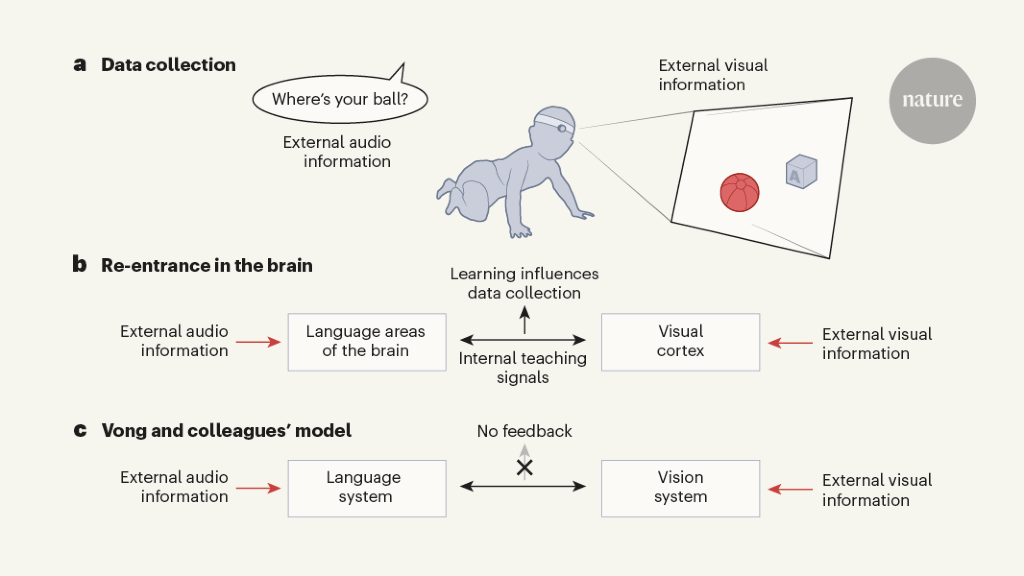Can Infants Teach AI to Be Less Data-Greedy?
Current advancements in artificial intelligence (AI) are blurring the lines between reality and science fiction, with machine-learning models that rely heavily on vast amounts of data approaching or even surpassing human capabilities. In a recent article published in Science, Vong et al. presented a groundbreaking challenge to the dominance of data-greedy AI models by showcasing the effectiveness of a multimodal learning model trained on just 61 hours of an infant's real-life experiences. This study highlights the potential for more efficient and human-like AI learning strategies that draw inspiration from the natural learning processes observed in infants. By leveraging limited but rich experiential data, this approach aims to revolutionize how AI systems are developed and trained, moving away from sheer data quantity towards quality and relevance. The research underscores the importance of understanding how humans learn and adapt to their environment as a blueprint for enhancing AI algorithms' performance and adaptability in various tasks.
התאם אישית סיכום
כתוב מחדש עם AI
צור ציטוטים
תרגם מקור
לשפה אחרת
צור מפת חשיבה
מתוכן המקור
עבור למקור
www.nature.com
Can lessons from infants solve the problems of data-greedy AI?
תובנות מפתח מזוקקות מ:
by Linda B. Smi... ב- www.nature.com 03-18-2024
https://www.nature.com/articles/d41586-024-00713-5
שאלות מעמיקות
